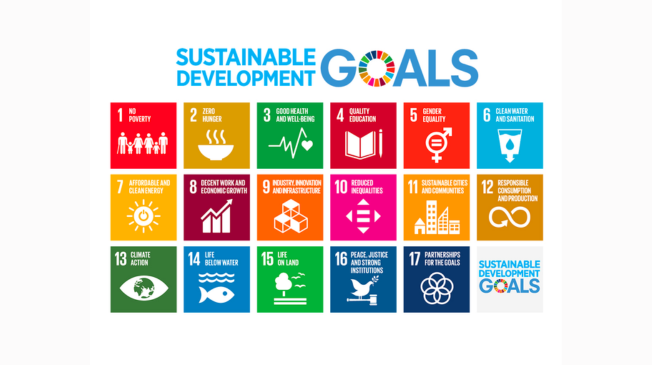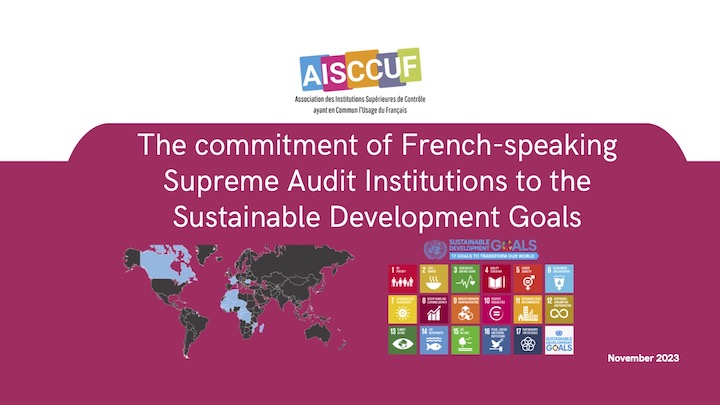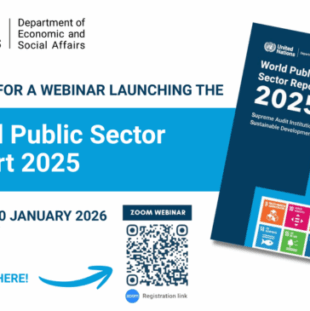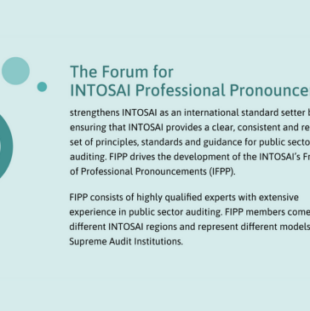The commitment of French-speaking SAIs to the Sustainable Development Goals

In addition to being directly concerned by SDG 16, and in particular its target 16-6: “Establish effective, accountable and transparent institutions at all levels”, SAIs are responsible for auditing the proper use of public funds and the public policies that are financed in this way. They are therefore in a position to analyze government spending and trajectories with regard to all the SDGs. In this way, they can help to ensure that these SDGs are properly considered in the implementation of public policies.
In July 2023, the French-speaking SAIs, gathered at a professional seminar in Bucharest hosted by the Romanian Court of Audit, wished to reaffirm their already existing commitment of SAIs to the SDGs, but also to amplify the role they can take in achieving them, notably in public debate and as trusted third parties via the credibility of their work in the eyes of citizens, as well as their determination to play a key role in achieving SDG16 – Peace, justice and effective institutions.

This commitment was reflected in the adoption of a plea document and the definition of seven principles defining and guiding the role of SAIs in achieving SDGs.
There are three types of link between the missions of SAIs and the implementation of SDGs. Firstly, SDGs constitute a common international framework for the public policies that SAIs are responsible for auditing. In this regard, the Ivory Coast’s Cour des Comptes conducted an audit on the preparation of the implementation of SDGs, in 2018, and an audit on the progress made in this implementation, in 2022. The Office of the Auditor General of Canada, for its part, integrates the monitoring of the implementation of SDGs into all its audits.
Secondly, SAIs must systematically integrate SDGs into their audits and evaluations of public policies. Within this framework, the Democratic Republic of Congo has issued alerts to the government on the obstacles and difficulties of the various sectoral projects and programs dedicated to achieving the Agenda 2030. Whereas the Cour des comptes has audited the “green budget”, which presents government spending and appropriations according to their environmental impact.
Finally, the work of SAIs needs to be publicized in order to have an impact on public debate and play a role in the process of holding public authorities accountable. The SAIs of Cameroon, Madagascar and Morocco have published audit reports on the use of funds to tackle the COVID pandemic and its consequences. These experiences demonstrate the scale of the media coverage and the impact that a report can have once it has been made public. They also illustrate the role of technical and financial partners (TFPs), who have provided these SAIs with technical and/or financial support, and can help them to resist any pressure to publish their reports.
Read the presentation of this commitment.
Discover the flyer summarizing the 7 principles.
The Association des Institutions Supérieures de Contrôle (ISC) ayant en commun l’usage du Français (Aisccuf) was founded in Paris in 1994, and today brings together 40 SAIs, including four permanent observers.
An associate member of the Intosai, the Aisccuf contributes to the work of the Intosai Development Initiative (IDI), and in 2008 joined forces with the Organisation internationale de la Francophonie (OIF) to “develop the common values of the Francophonie as promoted by the OIF”.
Aisccuf is currently chaired by the Cour des Comptes of Senegal. The French Cour des comptes acts as Aisccuf’s general secretariat on a permanent basis, and Belgium is its treasurer.
By Denis Gettliffe, project manager at the French Cour des comptes





